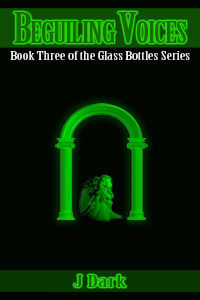Hello all!
I’m J Dark, author of ‘Best Intentions’, book one of a series I’ve come to call ‘Glass Bottles’.
I’m here to interview the author of a story I really have wanted to see in print since I first critiqued it. That story is ‘Building Baby Brother’ ( BBB ), by Steven Radecki. What we’re going to do today is a little Q&A about his story. This is a two-part series, with the second portion tomorrow.
I’m really honored to be the one to do this interview. So to jump right in, thank you Steven for sharing your time with the readers.
My first question is probably the one all authors get at least once every time your promoting a book. That question is: Where did you get the idea for BBB?
To be honest, I don’t remember where the actual idea for the plot came from. The story itself started as part of an exercise that, well, kind of got out hand. My son’s charter had planned to sponsor an event to help foster reading and writing skills by asking students and willing family members to write a short story and then read it out loud at this event. Always willing to write, particularly for a good cause such as that one, I started pondering possible story ideas. I knew I wanted something kind of “Twilight Zone”-ish—something short, entertaining, but with a fun twist at the end. From there, the basic concept of the story was born.
Every author develops their stories differently. In your case, did you create an outline first, or just choose a direction, or something else?
I rarely work from an outline for a short story. They are usually based on some concept I want to explore and I kind of see where the characters involved take it. In case, since it was originally only supposed to be 2,000 words, I felt a full-fledged outline might be overkill. As a result, though, the last third or so of the story went a direction that surprised even me.
No story ever flows smoothly as it’s created. What parts, or scenes were the hardest to develop?
I always have trouble with the middle. They say that maintaining the story and pace in the second book of a trilogy is often difficult, and I think the same thing is true about the middle of any story. I usually know how to start my stories and have a pretty good idea how it will end either when I start it or before I get a quarter of the way through it. In this story, probably the most difficult scene was scene with the police because I needed something that would transition the story from its setup to exploring the implications of the actions performed in its first half. I had a really tough time coming up with a scene that would work that would get me to where I wanted the story to go.
Another question I’m sure authors get asked all the time is, what made you decide to be a writer? With all the professions around, why get into writing?
Why not? I’ve always wanted to create—whether it be writing or filmmaking. There’s immensely satisfying about “putting on a show” and presenting it to an audience. With writing, perhaps even more than with filmmaking, you can have full control over your production: all the way from set design, costuming, and casting. Of course, when you sell the movie rights, you tend to lose those.
My last question for this series is, where and when do you like to write? I know that David Weber has said that he prefers the evenings, as it allows him to relax and concentrate. What are your favorite conditions for writing?
Peace and quiet—and good luck getting that! My preferred writing environment is where were I’m unlikely to be interrupted. I prefer to be able to get mentally lost in the world that I’m writing about. I find that the characters tend to be more vivid in my mind and are more to behave as they should so that mostly all I have to do is transcribe as they take whatever action the story requires of them. I’ve written in a lot of places: home, work, coffee shops, libraries, airports, hotel rooms…I’m pretty good at tuning out external distractions. Still, a quiet environment is my preference. Also, I don’t write with music on in the background; I find it too distracting.
![]() )
)